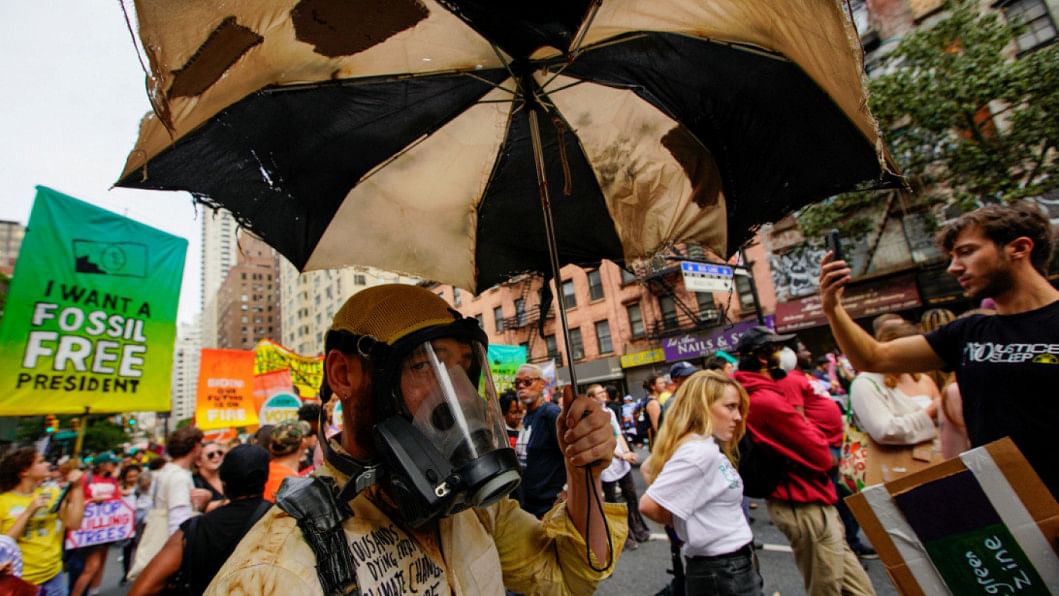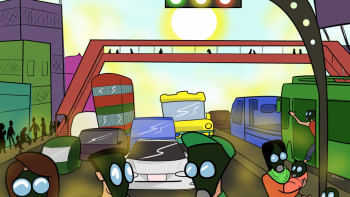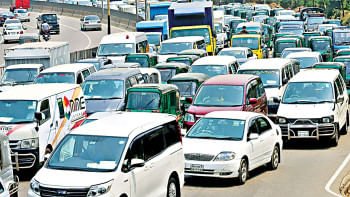A plea for common humanity

On a trip to the United States a couple of years ago, I visited a spectacular national park with a friend. The day was absurdly windy, but we struggled to go down a trail to see more of the park. As we were descending, we noticed a man in a MAGA (Make America Great Again) t-shirt sitting on a bench. I'm sure he had no difficulty discerning our political persuasion (the opposite of his), as political parties in the US tend to come with their own dress codes. I tried guessing whether people are Democrats or Republicans just after Trump was elected; it was discomfitingly easy.
As we passed, the man cracked a joke about being on guard to keep the wind from stealing people, or some such. What was important was that my friend and I both looked at this Trump supporter and laughed. We exchanged warm smiles with him and continued walking.
None of that should be remarkable. Complete strangers exchanging a word or two, acknowledging that we have a shared humanity, and then moving on. Except that the US has become so polarised that such mild interactions have become a rarity. Families are torn apart, friendships destroyed, and workplaces can become toxic over political differences.
We certainly don't always wish to work with others who disagree with us. We will always have our disagreements. But is it possible to overcome those disagreements enough to work together on shared goals—on creating the conditions that allow people and other creatures to live safely, to thrive (not just survive) on this planet?
It's easy from a distance to recognise the craziness of it all; but too many of us get caught up in it. Political differences can at least involve a difference in perspective based on people's deeply held beliefs. Other differences are less malleable: the colour of our skin, the amount of money we have, the religion we practise and, of course, our gender. And yet, any of those differences can serve as a pretext for mistreating others, for regarding them as "other," as different, and as unworthy of our friendship or respect.
Attitudes that insist on finding differences rather than commonalities are troubling because they limit our ability to lead full lives that are exposed to a diversity of viewpoints and experiences. They also make it difficult or impossible to solve big crises.
Take the climate crisis, for example. Given its severity and the fact that it is caused by burning fossil fuel, you might imagine that different political parties would agree on a common goal of ending the use of fossil fuel while having very different approaches on how to do so. They could have widely divergent strategies on incentives to travel and consume less. They could have different ideas of how to end the $5.9-trillion-per-year ($11 million per minute) subsidy to fossil fuel corporations. They could differ on how to utilise carbon taxes or how to elicit international collaboration and reparations. There is plenty of room for disagreement on solutions within a shared understanding that the crisis is upon us, and that our time to remedy it is rapidly running out.
Instead, in the US, we have one party that seeks remedies and one party that denies the existence of a climate crisis. And denialism is not unique to the US.
Part of me says that when people act so unaware, we have no choice but to be divisive, throw up our hands, and try to work around them. My wiser part says that calling each other crazy is no way to solve problems jointly.
And perhaps the differences aren't always as great as they seem. After all, when we look at the essentials, people all want the same things. People desire a safe environment for themselves and their children; good jobs, education, and healthcare; satisfying and well-paying work; recognition for all we do; love and friendship, and so on.
We may have difficulty connecting our actions to their consequences. We certainly don't always wish to work with others who disagree with us. We will always have our disagreements. But is it possible to overcome those disagreements enough to work together on shared goals—on creating the conditions that allow people and other creatures to live safely, to thrive (not just survive) on this planet?
It's easy to get discouraged. But the fact that we can still, on occasion, reach across the political aisle—or across the other differences that separate us—and be reminded of our shared humanity gives me hope for a future where we work together. Which is important because it's the only hope we have.
Debra Efroymson is executive director of the Institute of Wellbeing.
Views expressed in this article are the author's own.
Follow The Daily Star Opinion on Facebook for the latest opinions, commentaries and analyses by experts and professionals. To contribute your article or letter to The Daily Star Opinion, see our guidelines for submission.

 For all latest news, follow The Daily Star's Google News channel.
For all latest news, follow The Daily Star's Google News channel. 









Comments